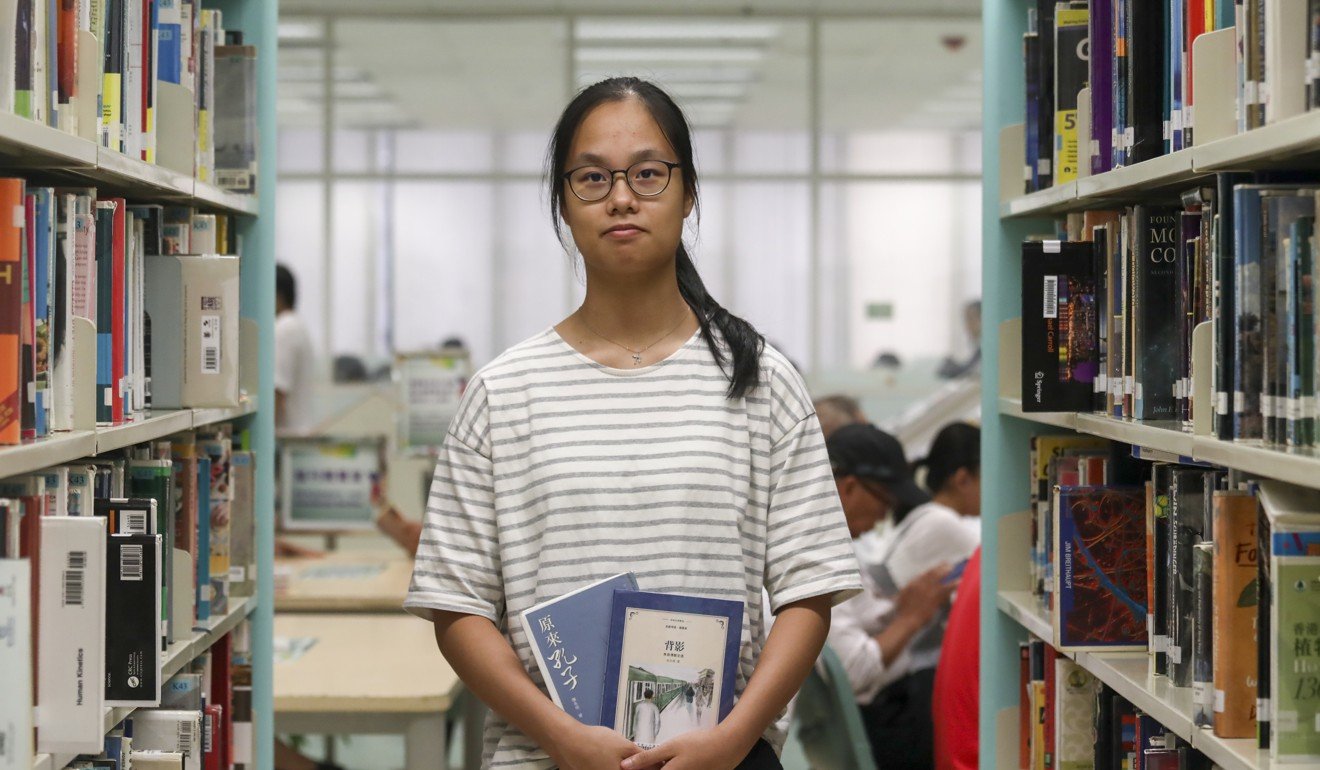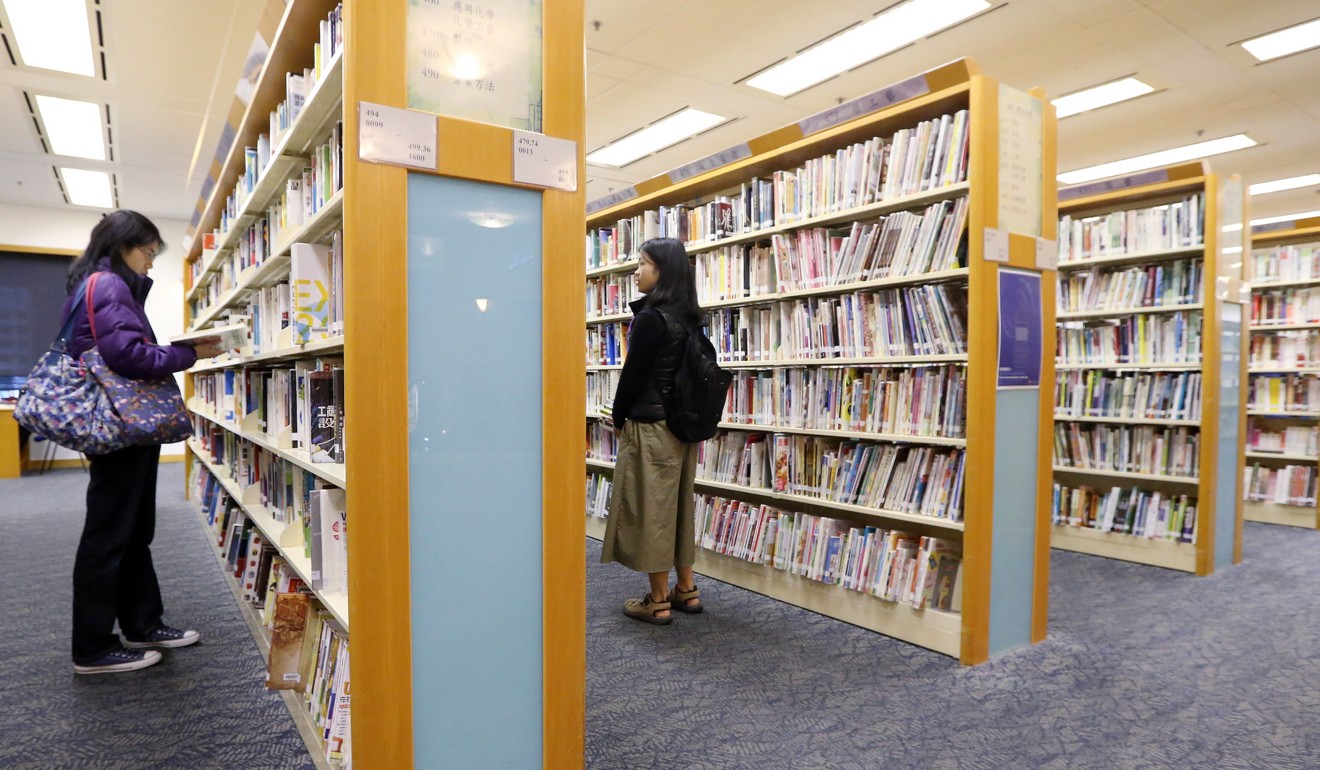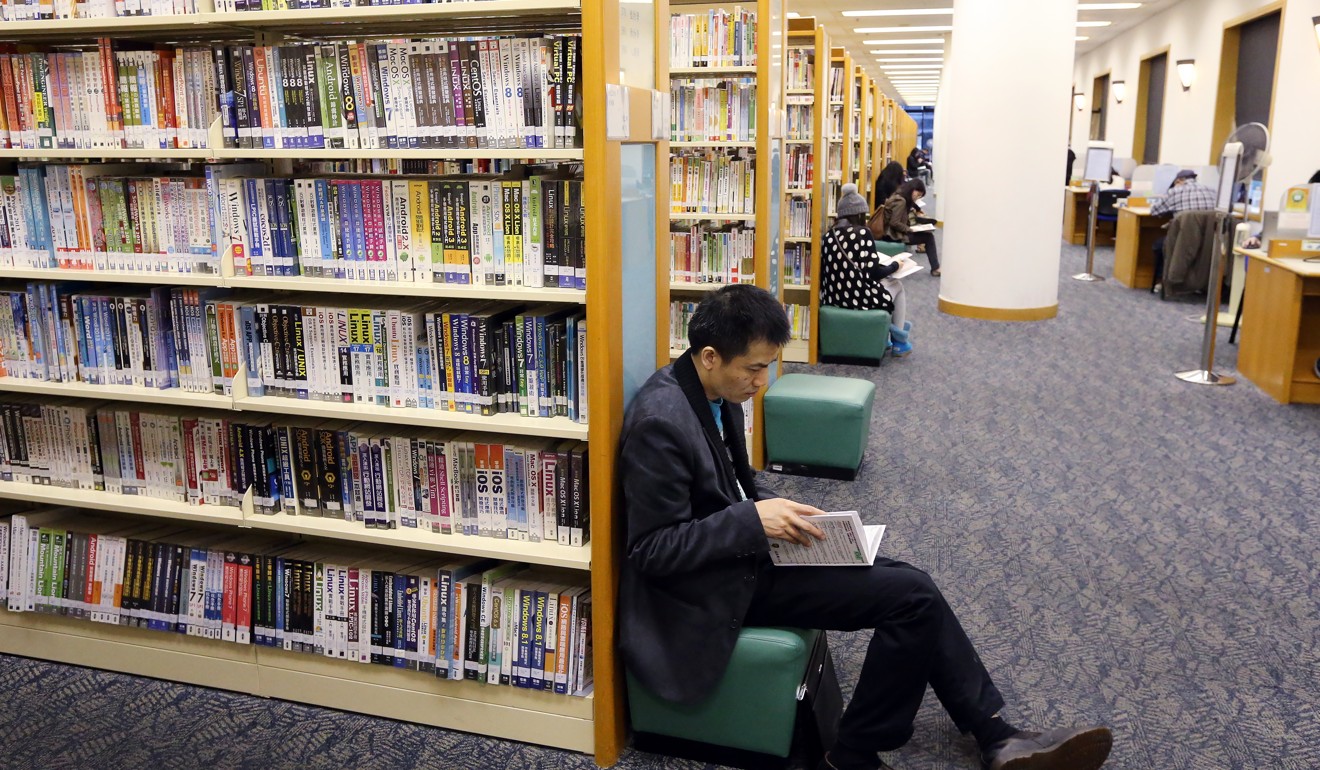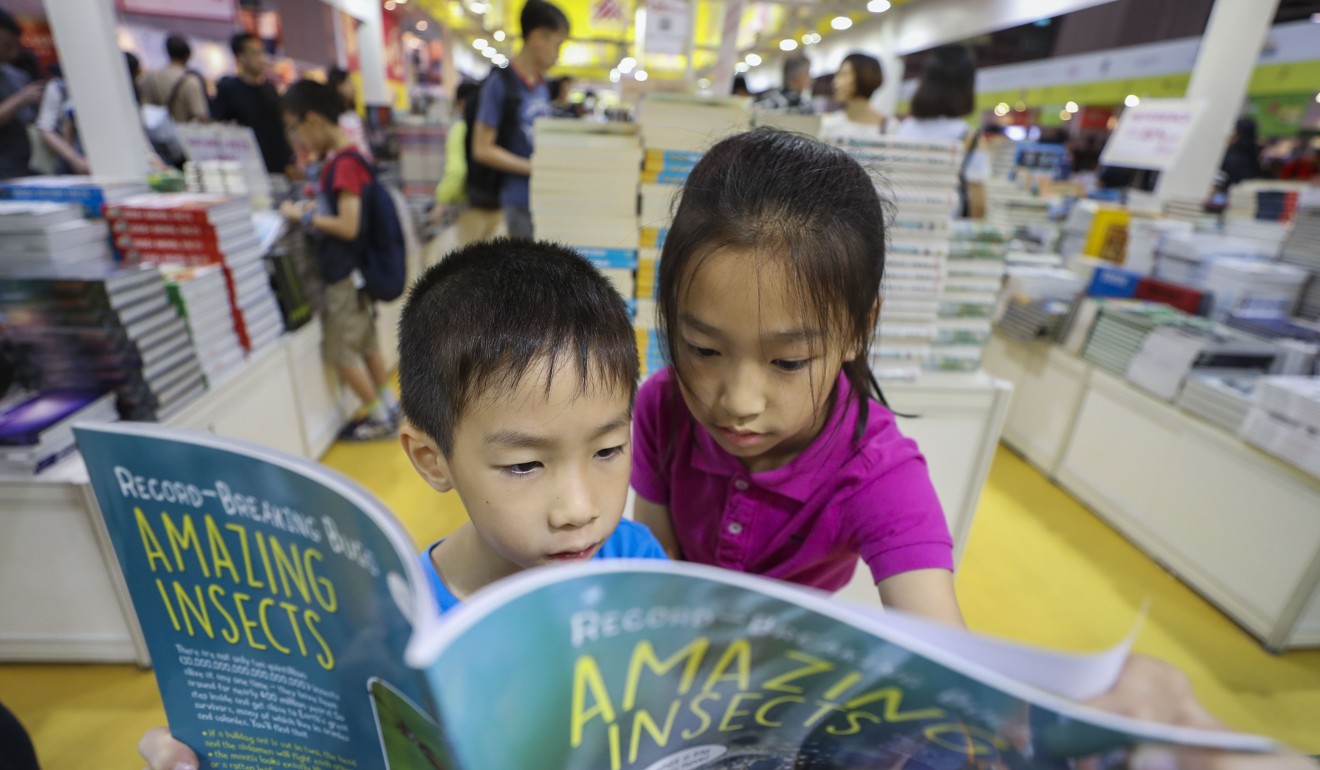
The death of the paperback: are Hongkongers reading less or are they turning to online literature?
- In the digital age, the habit of reading or borrowing books from the library seem to be on the decline among youth, with teen romance the dominant genre for online literature
- Experts lament the lack of appreciation for the classics amid changing times
Every two weeks, Christy Sze Wing-ka, 17, travels half an hour across town after school and spends almost as much time looking for good reads in the history section of Hong Kong’s Central Library.
She usually picks three books – two to borrow and one to read there – and starts immersing herself in the pages.
“Nothing fills my heart with joy quite like reading for leisure,” says the Form Five student. “Books can broaden my mind and widen my horizons, give me experiences I haven’t had, and take me to places I’ve never been, even go back in time to learn about life in a different era. Reading is really my favourite pastime.”
Sze knows she is unusual. “There are only two or three people in my class who will take out a book between lessons and at lunchtime. Most people in my generation are glued to their phones for video games, social media and online literature.”

A declining number of Hongkongers share her passion for reading, going by recent library figures.
The number of times books were borrowed from the city’s 82 public libraries, including 12 mobile facilities, fell 4.2 million over the past five years, from 50.5 million in 2014 to 46.3 million last year, according to the Leisure and Cultural Services Department.
On any weekend afternoon, the typical reader at the Central Library on Causeway Road is likely to be a senior citizen flipping through newspapers on the fifth floor, or a doting mother taking her child through the pages of an illustrated book.

Young people like Sze are an uncommon sight, though some may be spotted with their noses in their laptops or textbooks in the self-study area.
This gloomy picture for reading among Hong Kong’s youth contrasts with the rise of online local literature, a popular genre of romantic novels with sensational storytelling, which has drawn young users in particular in recent years.
According to the department, the number of times e-books were borrowed has risen from 100,000 in 2014 to 600,000 last year.
Hong Kong’s poor reading habit ‘will affect ability to learn independently’: survey
Almost a third of Hongkongers have not read a printed book in the past year and among them, nearly half have never formed the reading habit, a survey of 1,876 people by the Hong Kong Publishing Professional Society revealed in April.

An avid reader since young, Sze thinks reading is in her family’s DNA. “My dad is a teacher who taught me the joy of reading and my younger sister is a big fan of online novels, so my family certainly has had a big influence on me,” she says.
“I like reading all kinds of books, but history books in particular. Among my all-time favourites are a book on the interesting but largely untold stories of the Pearl Harbour attack and a biography of Confucius.”
Reading history books has helped with her studies too, as she is taking Chinese and western history for her Hong Kong Diploma of Secondary Education exams next year.

For 75-year-old Tsai Chun-an, retirement provided an opportunity to return to reading for leisure.
“I come to the Central Library every day after lunch and go home in the evening to have dinner with my wife,” he says. “I like reading here because I can use the magnifying glass machine here so I don’t have to wear an extra pair of reading glasses. The library is air-conditioned and has a seemingly unlimited stock of books, so what can be better than spending an afternoon here?”
Make reading a joy not a chore, Hong Kong parents and teachers urged
Tsai studied Chinese literature in university in Fujian, where he was born and grew up, and taught at a secondary school there before moving to Hong Kong in 1978. However, his qualifications were not recognised and he ended up working in a factory to earn a living while raising a son.
“I’ve always had an undying passion for Chinese literature,” he says. “But when I worked in the factory, I would come home exhausted without any energy left for reading. Since retirement, I’ve been going to libraries to read classics whenever I can.”

Lecturer Roger Lee King-hang, 46, who teaches philosophy at Caritas Institute of Higher Education and describes himself as a “massive book lover”, says of Cha’s enduring popularity: “Some critics may worry that the lack of new bestsellers or favourites among Hong Kong readers may represent a declining reading habit.
Reading goes out of fashion in Hong Kong in the internet age, or has it?
“I think it just means people nowadays have many more options, from playing video games to watching movies or TV dramas online. Youngsters also have a lot more on their plates, from taking tuition to learning a musical instrument and doing internships.”
Although popular online literature and romantic novels are not as well-written or culturally enriching as the classics, he said: “Some reading is better than no reading, especially for teenagers.”

Wong Kwok-hin, 34, a part-time modern Chinese teacher who founded the Flames Dream reading club 10 years ago and organises monthly book discussions among members, also sees the rise of online literature as a mixed blessing.
“Shakespeare and Tolstoy’s works were the popular literature of their times,” he notes. “Times change, and writing styles and forms will change accordingly.”
About 10 members of all ages, mostly office workers, attend the regular club meetings. To spur attendance, Wong has also changed with the times.
Why are Hong Kong parents not reading to their children?
“Now I sometimes choose books that have been adapted into films, and encourage discussions about the intersection between them, to keep up with evolving reading trends,” he says.
“The attention span of readers today is also much shorter, so there was one time we picked a book with only about 20 pages, rather than one as thick as a brick.”
I believe the cyberspace provides a fertile ground for the emergence of the next Jin Yong in Hong Kong
Lawmaker Roy Kwong Chun-yu, a famed online writer himself, says there is treasure in every e-book. “The quality and literary value of online Hong Kong literature has actually steadily improved over the years,” he says.
“The online platform has also encouraged many youngsters to take up writing as a hobby, even just for a few lines to begin with. I believe cyberspace provides a fertile ground for the emergence of the next Jin Yong in Hong Kong.”

Despite the popularity of teenage romance novels online, Ho Ching, 26, charted her own course by writing short poems on social media.
“I like writing on my own Facebook page because I can see the instant reaction and feedback from my readers, and I can share a short poem daily, or even every few hours, and don’t have to wait for several months to publish a book,” says Ho, a freelance writer and videographer.
“But that doesn’t mean there is only one writing style for online literature, I can use more well-crafted words and prose, and more refined techniques to write short essays and poems too.”
Her Facebook page has more than 60,000 followers, and two years ago, a publisher in Taiwan contacted her to produce a collection of her poems that has sold more than 3,000 copies.
“It’s the best of both worlds for me really,” she says. “I can enjoy the benefits of writing freely and in my own distinct style on the internet, and with more online subscribers and readers, publishers notice and get in touch in the hope of translating my online success into book sales too.”
